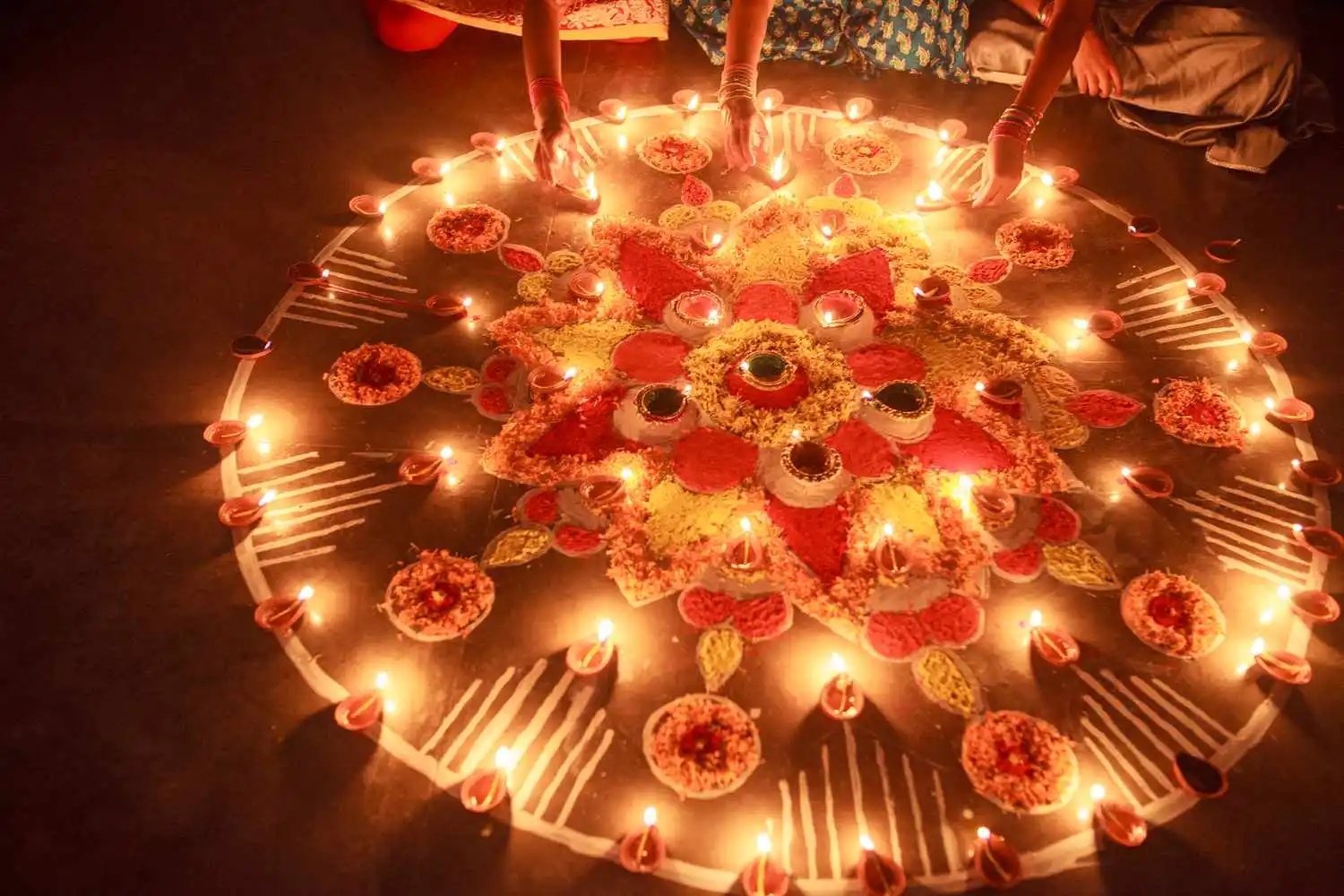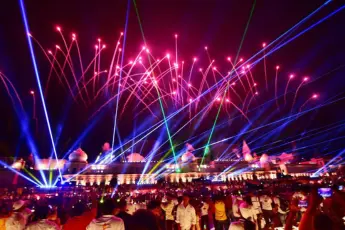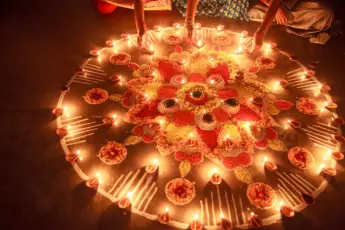Our Festival
Diwali
Celebrating Diwali: The Festival of Lights
Diwali, also known as Deepavali, is one of the most significant festivals celebrated by millions of people across the globe, particularly in India and Nepal, as well as by the Indian diaspora worldwide. It is a festival that transcends religion, embracing a universal message of hope, victory, and new beginnings. This auspicious occasion, often referred to as the Festival of Lights, symbolizes the triumph of light over darkness, good over evil, and knowledge over ignorance.

Diwali is celebrated over five days, with each day having its own significance, rituals, and traditions. The festival is rooted in various mythological stories, the most prominent being the return of Lord Rama, along with his wife Sita and brother Lakshmana, to Ayodhya after 14 years of exile and a victorious battle against the demon king Ravana. It is said that the people of Ayodhya lit up the kingdom with diyas (oil lamps) to celebrate their return, which is why the lighting of lamps is a central theme of the festival.
Diwali has evolved to not only embrace traditional rituals but also to incorporate modern practices that reflect contemporary values.
The Five Days of Diwali
- Dhanteras: The first day marks the beginning of Diwali and is considered auspicious for buying gold, silver, and utensils, symbolizing wealth and prosperity.
- Naraka Chaturdasi or Chhoti Diwali: The second day signifies the victory of Lord Krishna over the demon Narakasura, representing the removal of evil.
- Diwali: The main day of the festival features elaborate rituals, including the worship of Goddess Lakshmi (the goddess of wealth and prosperity) and Lord Ganesha (the remover of obstacles), the lighting of diyas, and the bursting of fireworks.
- Govardhan Puja: The fourth day is dedicated to the worship of Govardhan mountain, commemorating Lord Krishna’s protection of Vrindavan’s people from torrential rains by lifting the mountain.
- Bhai Dooj: The final day celebrates the cherished bonds between siblings, similar to the festival of Raksha Bandhan.
Traditions and Celebrations
The celebration of Diwali is marked by several customs and traditions, including:
- Lighting of Diyas and Candles: Homes are decorated with oil lamps and candles to welcome prosperity and happiness.
- Rangoli: Beautiful and intricate designs made from colored powders, flowers, and rice are laid out at entrances and courtyards as a warm welcome to visitors and the goddess Lakshmi.
- Exchange of Sweets and Gifts: Sharing sweets and gifts with friends and family is a gesture of goodwill and bonding.
- Fireworks: Spectacular fireworks displays light up the night sky, symbolizing joy and festivity.
- Prayers and Puja: Special prayers and pujas (rituals) are performed to honor and seek blessings from the deities.
The Spirit of Diwali in Modern Times
In recent times, Diwali has evolved to not only embrace traditional rituals but also to incorporate modern practices that reflect contemporary values. Eco-friendly Diwali celebrations are gaining traction, with people opting for sustainable practices such as using biodegradable diyas, minimizing the use of fireworks to reduce air pollution, and choosing eco-friendly gifts.


Diwali, with its universal appeal, brings together people from different walks of life to celebrate the shared ideals of hope, joy, and renewal. It’s a time for reflection, to cherish the love of family and friends, and to look forward with optimism. As we light a diya this Diwali, let’s remind ourselves of the light within each one of us, capable of dispelling the darkness and spreading warmth and love. Wishing everyone a very happy and luminous Diwali!
Error: Contact form not found.
